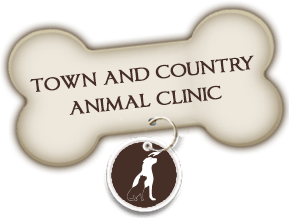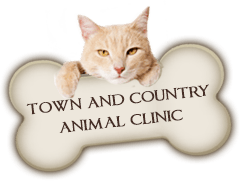We all know that we should not be feeding our pets food off of the table since their quality pet food contains all the nutrients and calories they need to be healthy. But it is hard to resist those big eyes staring up at you while you’re eating. So we wanted to discuss what foods to avoid feeding your dog or cat and what foods are safe to share with your animal.
FOODS NOT TO FEED TO YOUR PET
Avocado
Avocado contains a substance called persin, found in the leaves, seeds, bark and it is present in the fruit. It is harmless to humans (unless they are allergic) but large amounts can be toxic to dogs. If you happen to be growing avocados at your home it is important to keep it in a area that your pets cannot get into.
Alcohol
Although alcohol may be great tasting and inviting for humans, it is no good for your animals. Alcohol effects an animal’s liver and brain the same way it does to humans, but it takes far less to do damage. The smaller the dog, the greater the effect. Symptoms include vomiting, diarrhea, central nervous system depression, problems with co-ordination, difficulty breathing, coma and even death.
Onions and Garlic
Onions and garlic (in all forms: powdered, raw, cooked or dehydrated) can be harmful to your pet by eating a large quantity at one sitting or by eating small amounts on a regular basis. Onions and garlic can destroy the animal’s red blood cells, leading to anemia. Symptoms of anemia include weakness, vomiting, little interest in food, lethargic and breathlessness.
Coffee, Tea and Other Caffeine
Caffeine in large quantities can be fatal to your pet, and sadly there is no antidote. Caffeine can be found in cocoa, chocolate, colas, energy drinks (ex: Red Bull), cold medicines and pain killers. Symptoms of caffeine poisoning include restlessness, rapid breathing, heart palpitations, muscle tremors, fits and bleeding.
Grapes and Raisins
The specific chemical that causes grapes to be toxic to animals is unknown, and therefore is difficult to determine how many grapes may cause your pet to become ill. Some animals can handle grapes with no issues and others have only one or two and it can make them sick. Initial symptoms of grape toxicity include vomiting, followed by diarrhea, lethargy, increase thirst and are seen within several hours after ingestion. After the first 24 hours it may lead to acute renal failure (kidney failure). Since the exact toxin is unknown there is no antidote available. Also since every animal reacts differently to grapes, it is important to seek veterinary care as soon as possible.
Milk and Other Dairy Products
A lot of people believe that milk is good for animals because it is good for us. Unfortunately what we drink is cow’s milk and what your cat and dog would benefit from is feline milk or canine milk. Animals tend to be lactose intolerant and therefore the symptoms can be diarrhea or other digestive upset. It can also trigger a food allergy in your pet which will cause their skin to become itchy (ex: paws, ears).
Macadamia Nuts
As few as six roasted or raw macadamia nuts can make your pet ill. Eating a chocolate containing these nuts will make the symptoms worse and possibly can be fatal for your animal. Symptoms of poisoning include muscle tremors, weakness or paralysis of the hindquarters, vomiting, elevated body temperature, and rapid heart rate.
Candy and Gum
Xylitol is a common sweetner found in items such as chewing gum, toothpaste, sugar-free jam, and reduced calorie baked goods. To dogs and cats, Xylitol can be deadly in relatively small doses. When an animal accidently ingests Xylitol , the pancreas mistakes this compound as insulin. Normally after digestion, insulin is released into the bloodstream to allow the glucose in food to be utilized as a source of fuel for the cells. With an increase of insulin in the system, your pet’s blood glucose level will be reduced and cause hypoglycemia. The symptoms of hypoglycemia include lethargy, weakness, ataxia (loss of coordination), seizures and coma followed by death. Xylitol induced hypoglycemia can occur as quickly as 30 minutes and persist for days. Although with smaller amounts of Xylitol ingested, symptoms may be delayed by up to 12 hours.
Chocolate
Chocolate contains theobromine, a stimulate that is toxic in high doses. Dark, unsweetened and bakers chocolate have the highest concentration of theobromine. Milk chocolate and white chocolate contain lower concentrations. Theobromine stimulates the central nervous system and the heart, increases blood pressure, and causes digestive upset. Signs of chocolate toxicity include excitement, agitation, nervousness, increased thrist, vomiting and diarrhea. It can also cause abnormal heart rhythm, tremors, seizures and death.
Fat Trimmings and Bones
The table scraps from meat usually contain the fat and the bone that we have not eaten. This should be an indication not to feed this to your pet, but a lot of us think it’s natural for a dog to chew on a bone. The problem is the bone can splinter and cause an obstruction or laceration in your dog’s digestive system. Ham bone are also a perfect shape to become lodged in the roof of their mouth and is very destructive for the surrounding teeth. Usually a dog panics and it becomes very difficult to remove the lodged bone from it’s mouth. The fat from trimmed meat (cooked or uncooked) can cause pancreatitis in dogs, which is a serious disease that can lead to hospitalization your pet for treatment.
Persimmons, Peaches and Plums
The seeds or pits of these fruits can become obstructed in your pet’s intestines. The pits also contain cyanide, which is poisonous to both humans and dogs. Unfortunately dog’s don’t know not to eat the pits, but we do. The seeds from persimmons can cause inflammation of the small intestine in your animal.
Raw Eggs
There are two problems with giving your dog raw eggs. The first is the possibility of food poisoning from bacteria like Salmonella or E. Coli. The second is that an enzyme in raw eggs interferes with the absorption of a particular B vitamin. This can cause skin problems as well as problems with your dog’s coat if raw eggs are fed for a long time.
Raw Meat and Fish
Raw meat and raw fish, like raw eggs, can contain bacteria that causes food poisoning. Certain kinds of fish, ( ex: salmon, trout, shad, or sturgeon) can contain a parasite that causes “fish disease” or “salmon poisoning disease”. If not treated, the disease can be fatal within two weeks. The first signs of illness are vomiting, fever, and big lymph nodes. Thoroughly cooking the fish will kill the parasite and protect your dog.
Salt
Too much salt can be hard on your pet, much like humans. Eating too much salt can cause excessive thirst and urination leading to sodium ion poisoning. Symptoms of too much salt include vomiting, diarrhea, depression, tremors, elevated body temperature and seizures. It may even cause death.
Sugary Foods and Drinks
Sugar in abundance can be harmful to your pet as well as yourself. It can lead to obesity, dental problems and the possible onset of diabetes.
Yeast Dough
Since bread dough requires a chance to rise before it is baked, it would do so in your dogs stomach if he ingested it. As it swells inside, the dough can stretch the dog’s abdomen and cause severe pain. In addition, when the yeast ferments the dough to make it rise, it produces alcohol that can lead to alcohol poisoning.
Your Medication
Although there are a lot of human medicine that we can give to animals, the dosing is different for humans, canine and felines. Be sure to keep all medications out of your dog’s reach and if you would like to try a human over the counter product, contact your veterinarian so they can calculate the correct dose for your pet.
Items from Your Kitchen Pantry
Many items commonly found in kitchens can be harmful to your pet. Spices such as nutmeg can be toxic to your animal. Baking powder, and baking soda can be highly toxic as well. Keep items high in cupboards and keeping your pantry door closed will help keep your pet safe.
If your dog or cat does ingest something it should not, call your local veterinary clinic immediately. There are some situations when we can cause your pet to vomit, there are other situations where you do not want your pet to bring up what it has already put in it’s mouth. Therefore call your veterinary clinic and they can give you immediate assistance. In case of an emergency, it may be a good idea to keep some phone numbers handy or even entered as a contact on your phone; your local veterinary clinic (Town and Country Animal Clinic at 519-250-0099), the nearest emergency clinic (Walker Road Animal Hospital at 519-972-9000) and ASPCA Animal Poison Control Center (1-888-426-4435).
FOODS YOUR PET CAN EAT
The best item you can feed your pet is a high quality, well balanced diet. Your veterinarian can recommend a quality brand of food. A well-designed dog food gives your pet all the nutrients it needs for an active and healthy life. If you still want to give your dog a healthy treat from home, here are some suggestions:
Lean Meats
Most lean cuts of meat that have been thoroughly cooked are safe for your pet. Be sure to remove all visible fat and the skin on poultry products. Also be sure there are no bones in the meat.
Safe Fresh Fruits
Slices of apples, oranges, bananas and watermelon are safe for your pet if the seeds, stems and leaves are removed.
Safe Vegetables
Carrot sticks, green beans, cucumber slices or zucchini slices are safe for your pet. Be sure to keep your pet out of your garden as some raw vegetables (ex: potatoes) can be harmful to your pets.
Cooked White Rice and Pasta
Your pets can have cooked white rice or pasta as a treat. If they are having digestive upsets, cooked white rice and chicken can act as a bland diet to help settle the stomach.
To see a slide show regarding all of these ideas, check out this website: http://pets.webmd.com/dogs/ss/slideshow-foods-your-dog-should-never-eat
https://www.townandcountryanimalclinic.ca/
The resource for the information in this blog was provided by Web MD at http://pets.webmd.com/dogs/ss/slideshow-foods-your-dog-should-never-eat.






